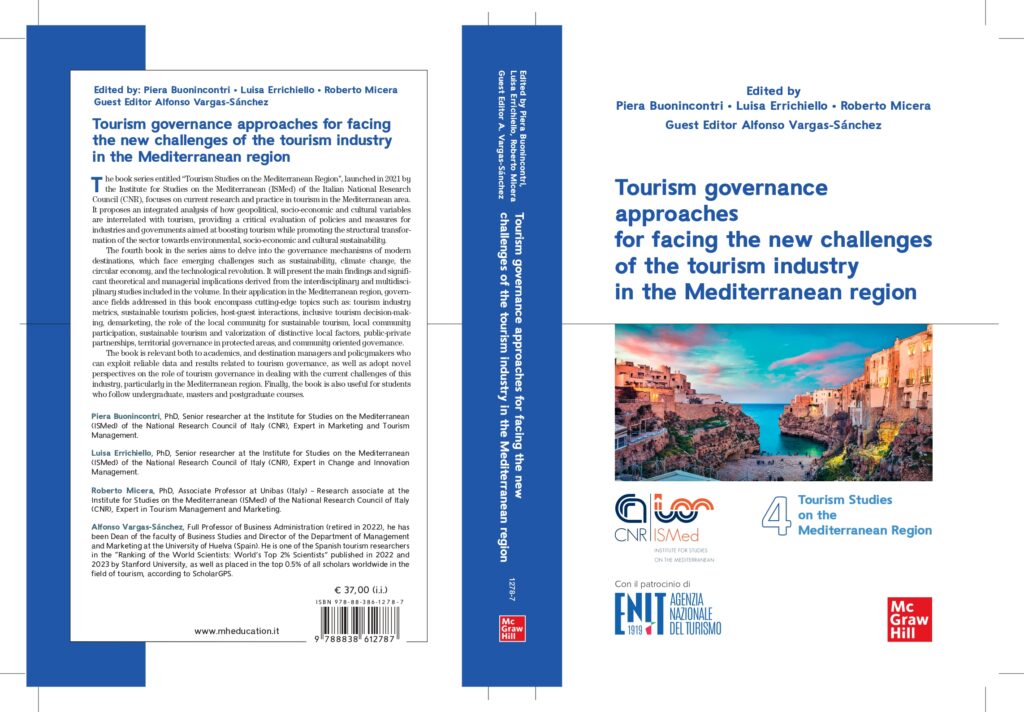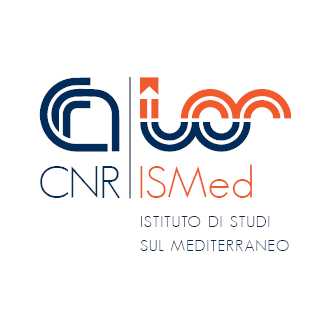Published the fourth volume of the Book Series “Tourism Studies on the Mediterranean Region”
Date:
17 January 2025

The fourth volume of the Book Series “Tourism Studies on the Mediterranean Region” has been published, edited by CNR-ISMed senior researchers Piera Buonincontri, Luisa Errichiello, and Roberto Micera (University of Basilicata and CNR-ISMed). Entitled “Tourism Governance Approaches for Facing the New Challenges of the Tourism Industry in the Mediterranean Region”, the volume was realized in collaboration with guest editor Prof. Alfonso Vargas-Sánchez (University of Huelva, Spain).

Description
In December 2024, the fourth volume of the Book Series ‘Tourism Studies on the Mediterranean Region’ was published. The volume, titled “Tourism Governance Approaches for Facing the New Challenges of the Tourism Industry in the Mediterranean Region”, examines the evolution of tourism governance in response to post-pandemic challenges, with a particular focus on local community inclusion, sustainability, and technological innovation.
The volume proposes innovative governance approaches, presenting 11 contributions that explore topics such as sustainable tourism, host-guest interactions, demarketing, community participation, and the enhancement of distinctive local resources. With a specific focus on Mediterranean countries, the chapters feature case studies from Italy, Croatia, Spain, and Tunisia, along with statistical analyses and qualitative studies. These interdisciplinary and multidisciplinary approaches offer theoretical and managerial perspectives aimed at fostering inclusive and sustainable tourism governance.
On a theoretical level, the volume contributes to redefining the concept of tourism governance, emphasizing trust-building, commitment, and negotiation as key factors for an innovative, sustainable, and participatory model. It examines the role of sustainability, the circular economy, and the technological revolution in shaping the sector’s future, highlighting the critical importance of strategic execution to differentiate destinations.
The managerial implications of the volume stress the need for strategies that balance power dynamics in the sector, overcome inertia, and address resistance to change. The call for cooperation extends beyond traditional public-private partnerships, incorporating collaborations among public, private, and community actors.
This volume is particularly valuable for policymakers, tourism sector managers, and scholars interested in developing more equitable and sustainable governance models. Local communities, in particular, are positioned as essential protagonists of a regenerative tourism model that enhances the social and ecological well-being of destinations.
Last update
17 January 2025, 14:28

 CNR – ISMed
CNR – ISMed